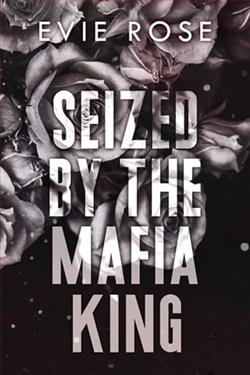Page 79 of The Captive Knight
Chapter Twenty-Two
Aliénor stared out the leaded windows onto the sun-drenched field with the longing of a drunkard for a goblet of wine.
“Come, Blanche,” she said, knowing she sounded like a long-denied child, “let’s quit this stuffy room and walk through the fields.”
“Have you lost your senses?” Blanche raised her gaze from her embroidery. “It’s hot enough out there to bake a hen in its nest.”
“In Gascony, the heat of the summer is far worse than this.”
“Well, first, I am not Gascon. And second—”
“How can you breathe in this room?” Tossing her embroidery in the basket, she stood up from her chair so abruptly that it clattered. “I swear I shall suffocate if I don’t get some air.”
Ignoring the starts, stares, and raised brows of the other ladies, including the heavily pregnant regent’s wife, Aliénor headed out of the solar. She was tired of being cooped up like the sparrow hawk she’d left behind in Castelnau under Sir Rostand’s care. Most of all, she was tired of listening to what sheshoulddo, what shemustdo, what she wasexpectedto do. If the world conspired to order her life, then she would take freedom in any small way she could.
So she bounded down the stairs to the great hall. In the vaulted room, courtiers, supplicants, and men-at-arms mingled, enjoying wine while dogs turned and turned in tight circles, seeking the coolest stones in the shadowed corners. She ignored the curious looks cast her way, ducking her head so as not to catch any man’s eye, and followed a straight and unwavering path to the front door of the castle.
She was out the door long before Blanche followed her with a wobbling, worried shout of her name.
“We shouldn’t be here,” Blanche sputtered as she caught up with her. “None of us should be outside today.”
Aliénor frowned at the iron portcullis, lowered to block access to the cool green fields beyond the castle gates. “This is foolishness.”
“It’s for our protection,” Blanche insisted. “You know that horrid man, the mayor of Meaux, has been allowing armed peasants into the city.”
“Rumors, nothing more.”
“Rumor or not, do you want to be trapped in an open field when vicious men attack this castle?”
“Blanche, there’s a river between us and the village.”
“And a bridge they can cross—”
“—which is as narrow as it can be. From these ramparts, the regent’s archers can pick off any attackers, one at a time.”
“Oh, please, Aliénor, I can’t bear it when you speak so.” She clasped her hands over her wimple. “If the men believe we’re in danger, then we should listen and stay inside.”
Aliénor exhaled in frustration. The regent was frequently away from his court, dispersing riots, testing the strength of the Parisian defenses, and seeking to confront the pretender Navarre wherever he could. He’d long confined all those who remained here to stay on the island and not venture over the bridge into the village. Today, it seemed, the circle of forbidden travel had shrunk to within the fortress walls looming around her.
If only she could turn herself into a sparrow hawk and soar over them! Maybe if she flew high and far enough, she could see the view from Castelnau, the rolling fields unfurling to the horizon, the darkness of the forest to the west, the wild places she could lose herself in whenever worries wore her down.
“You, my dear, are in such a state as I’ve never seen you.” Blanche slipped her arm through Aliénor’s and tugged her into a stroll around the square courtyard. “Yet half the women in the solar would give a tooth to have your options right now.”
“Stuck within castle walls on a hot day?”
“Betrothed, my dear,” she said, “to a young and handsome knight.”
The small muscles of her ribs tightened. Last night, Thibaud had brought Aliénor the news of Sir Guy’s offer, sharing it as if it were a miracle.
Aliénor said, “We’re not betrothed yet.”
“But you will be soon.”
“It depends on how much Sir Guy will demand for my dowry from the regent.”
“The regent is a generous man. The thing is all but done.” Blanche leaned in close, hugging Aliénor’s arm. “Truly, I don’t understand you. He’s your countryman, a fine-looking man who is the heir to his father’s title—”
“I know, I know. Good sense says I should accept.”















